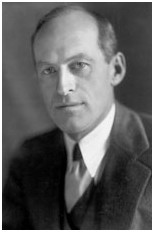Tydings–McDuffie Act
usinfo | 2013-08-21 14:32

Senator Millard Tydings is one of the authors of the Philippine Independence Act.
The Tydings-McDuffie Act (officially the Philippine Independence Act, Pub.L. 73-127, 48 Stat. 456, enacted March 24, 1934) was a United States federal law which provided for self-government of the Philippines and for Filipino independence from the United States after a period of ten years. It was authored by Maryland Senator Millard E. Tydings and Alabama Representative John McDuffie,[1] and signed into law by President Franklin D. Roosevelt, all Democrats.
In 1934, the Philippine politician Manuel L. Quezon headed a "Philippine Independence mission" to Washington, D.C.. It successfully lobbied Congress and secured the act's passage.[1]
The Tydings–McDuffie Act authorized and specified a procedural framework for, within two years of its enactment, the drafting of a Constitution for the government of the Commonwealth of the Philippines. The act specified a number of mandatory constitutional provisions, and required approval of the constitution by the U.S. President and by the Filipino people. The act mandated U.S. recognition of independence of the Philippine Islands as a separate and self-governing nation after a ten-year transition period. [2]
Prior to independence, the act allowed the U.S to maintain military forces in the Philippines and to call all military forces of the Philippine government into U.S. military service. The act empowered the U.S. President, within two years following independence, to negotiate matters relating to U.S. naval reservations and fueling stations of in the Philippine Islands.[2]
The act reclassified all Filipinos, including those who were living in the United States, as aliens for the purposes of immigration to America. A quota of 50 immigrants per year was established.[2]
One effect of the act was to pave the way for the Filipino Repatriation Act of 1935.[3]
In 1943, Tydings introduced a similar bill for independence of Puerto Rico, a territory of the US. While its political parties supported the bill, Luis Munoz Marin, leader of the Popular Democratic Party (PPD) did not, and he was influential in persuading Congress not to pass the bill.
Share this page